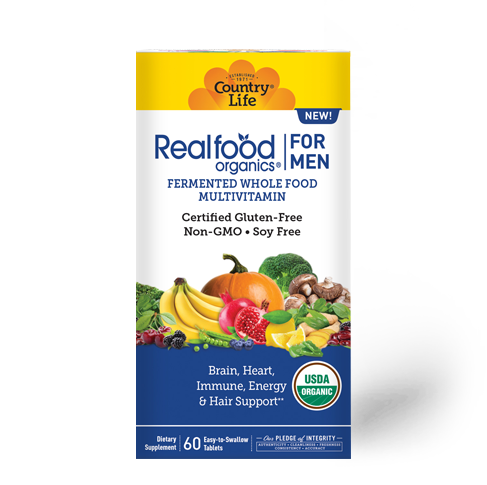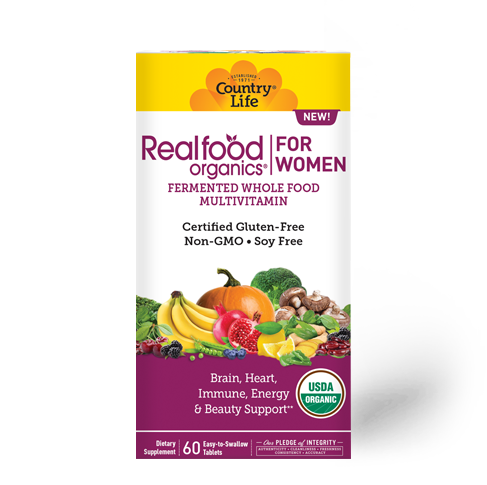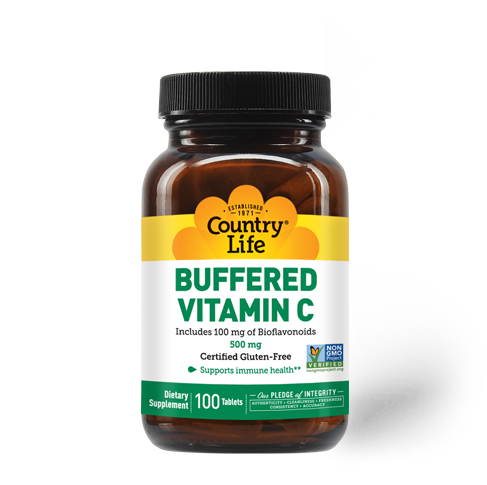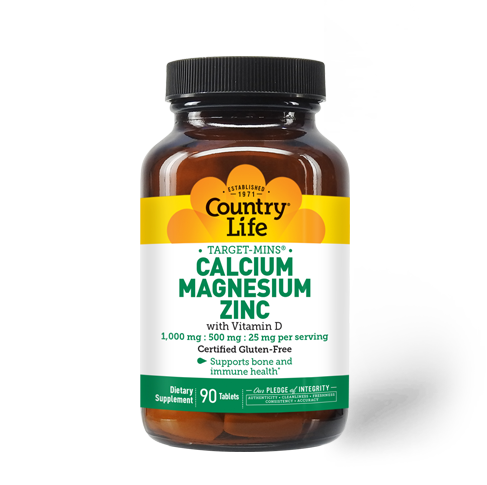Morning routines and rituals are essential for a positive and productive day.
Whether you’re an early riser or late sleeper, hit the gym at sunrise or facilitate the “morning crush” and carpool for your kiddos, an ideal morning routine should energize, nourish, and prepare you to face the day.
For many, morning is also a natural time to take supplements.
But before you line up those pills, it’s important to consider how aspects of your morning routine may impact nutrient absorption.
Here are five things to consider when taking supplements in the morning.
1. Caffeine Impacts Absorption of Iron, B-Vitamins, and Other Essential Minerals
Most people enjoy coffee, tea, or other caffeinated beverages to help them wake up and start their day.
Unfortunately, studies have shown that caffeine in coffee, tea, green tea, matcha, chocolate, soft drinks, energy drinks, etc., inhibits the absorption of several nutrients, including:
- Iron
- B-vitamins
- Magnesium
- Calcium
There is also evidence that excessive caffeine may interfere with vitamin D status, leading to bone loss; however, the timing of this effect was not mentioned in the studies.
How to Adjust Your Morning Routine to Improve Nutrient Absorption
Caffeine is rapidly absorbed (hence the quick high), but it can take several hours to completely leave the body.
Therefore, putting some space between your caffeine intake and supplements will provide better absorption.
How much space? It depends on who you ask, so this isn’t an exact science.
As a general starting point, if you drink a cup of coffee or tea in the morning, consider taking your vitamins at lunchtime or at least thirty minutes to two hours after consuming it.
The same advice goes if you drink caffeinated beverages throughout the day, try to space them apart from taking supplements.
Given caffeine’s negative impact on nutrient levels, you may want to consider this your sign to cut back (and if not, no judgements!).
If so, check out 25+ Natural Energy Boosters: Caffeine & Coffee Alternatives for inspiration and recipes.
2: Fat-Soluble Nutrients Require Fats for Absorption
If you’re an intermittent faster or a fruit- or fat-free-until-noon enthusiast, morning may not be the best time to take fat-soluble vitamins, such as vitamin A, D, E, K, and even omega-3 fatty acids.
These vitamins require the presence of dietary fats for optimal absorption, and some people find fish oil digests better with a more substantial meal or with food in their stomach.
How to Adjust Your Morning Routine to Improve Fat-Soluble Nutrient Absorption
If you already eat healthy fats with breakfast, there’s no need to adjust your routine.
If you thrive on intermittent fasting or a fat-free morning routine, simply wait until lunchtime to take your fat-soluble vitamins and omega-3s.
Note: Some individuals tolerate omega-3s well when taken on an empty stomach, so consider experimenting to determine what works best for you.
3. Vitamin C-Rich Foods May Help Enhance Iron Absorption
If you’re iron deficient, insufficient, or pregnant, you want to make sure you’re getting the most out of your iron supplement.
In addition to spacing iron supplements away from caffeine, including vitamin C-rich breakfast foods and/or vitamin C supplements can help aid and even enhance the absorption of this critical nutrient.
How to Adjust Your Morning Routine to Improve Iron Absorption
If you’re taking a multivitamin with iron, such as Country Life’s Realfood Organics® Multivitamin For Women or For Men, you’re already getting enough synergistic vitamin C.
If you’re taking an individual iron supplement, add some of the following vitamin C-rich foods to your morning routine:
- Citrus fruits such as oranges, grapefruits, tangerines, lemons or limes. Eat them whole, enjoy a small glass of citrus juice, or squeeze lemons or limes into water for a healthy and hydrating start to your day
- Kiwis can be added to smoothies for a big flavor punch, diced and blended into yogurt, enjoy with granola, or added to a fruit salad
- Mangoes make a great substitute for bananas in smoothies or protein shakes and are delicious in parfaits, mango lassis, granola, oatmeal, overnight oats, chia pudding, fruit salads, or on their own plain or with a bit of chili and fresh lime juice
- Kale and other cruciferous vegetables, such as broccoli and bok choy, are excellent sources of vitamin C and plant-based iron, a win-win! Fold them into omelets, scrambles, breakfast burritos, savory egg muffin cups, sweet muffins with hidden veggies, grain bowls, or healthy homefries
- Bell peppers make a wonderful complement to egg dishes, scrambles, grain bowls, and breakfast sandwiches or burritos
- Tomatoes can be added to any savory breakfast dish and are also tasty halved and roasted with olive oil, salt, and pepper as a fun, vitamin C-rich topping for avocado toast or quiche
You can also consider a vitamin C supplement, such as Country Life’s Time-release vitamin C with rosehips, Chewable Orange Vitamin C, or Chewable Acerola vitamin C.
Discover more ways to boost iron levels naturally in: 20+ Food & Supplement Sources of Iron for Omnivores, Vegans, & Everyone in Between.
4. Certain Vitamins, Like Multivitamins, Should Be Taken With Food
Not all vitamins need to be taken with food, but some should be.
For example, water-soluble vitamins, like B vitamins and vitamin C, can be taken and absorbed on an empty stomach with a glass of water, although not everyone tolerates them equally without food.
However, fat-soluble vitamins, like vitamins A, D, E, and K, require the presence of dietary fat for absorption.
This means you may need to adjust when you take your multivitamin in the morning.
How to Adjust Your Morning Routine
If you’re an intermittent faster or just don’t like eating in the morning, consider the following.
Multivitamins contain fat-soluble vitamins A, C, D, E, and K, which, as you learned earlier, require dietary fats for optimal absorption. Therefore, be sure to eat breakfast with some healthy fats if you take your multis in the morning.
If you prefer to fast or eat fat-free until noon, take your multivitamins at lunchtime.
Minerals, such as calcium and magnesium, can be taken without food.
Water-soluble vitamins, like B vitamins and vitamin C, can also be taken on an empty stomach with a glass of water. However, some people report feeling nauseous when taking B vitamins without food, so listen to your body and adjust as needed.
Iron is ideally taken on an empty stomach or with vitamin C-rich foods. However, not everyone can tolerate an iron supplement without food.
In that case, it’s recommended to take it with food, but avoid caffeine, dairy (which can inhibit absorption), and calcium supplements, as these can further inhibit absorption.
Related reading: What Is The Best Time Of Day To Take Vitamins?
5. Waking Up Dehydrated Can Interfere With Nutrient Absorption
We’ve discussed at length how food can impact our nutrient intake, but water can be just as important!
Specifically, dehydration can negatively impact the absorption and transport of various nutrients, especially water-soluble vitamins.
This is significant for morning routines, as most of us don’t hydrate while we sleep, then grab a cup of diuretic (dehydrating) coffee or tea upon waking.
How to Adjust Your Morning Routine to Optimize Hydration
The simple act of drinking a glass of water upon waking can make a significant difference in your hydration levels, digestion, and nutrient absorption.
It’s also generally recommended to take supplements with water, which will further assist in the assimilation and absorption of water-soluble nutrients, help promote normal digestion and elimination, and enhance the effectiveness of fiber supplements.
If plain water isn’t your jam first thing, try adding some lemon or lime juice or a clean electrolyte powder to improve flavor.
Get more hydration inspiration in: What Are The Skin And Overall Health Benefits Of Drinking Water?
What Supplements Should You Take in the Mornings?
As discussed in What Is The Best Time Of Day To Take Vitamins?, the best time of day to take your supplements is when it offers you the most benefits and fits into your routine.
For example, most experts recommend taking energy-supportive vitamins, such as multivitamins, B vitamins, and iron, in the morning.
However, as we’ve just discussed, it may be beneficial for some people to take them later in the day, especially if they consume a lot of caffeine in the mornings or skip breakfast.
Some supplements, like magnesium and specific calcium formulas, can have a relaxing effect and may be better taken in the evenings.
Digestive enzymes and probiotics are often recommended to be taken about thirty minutes before meals.
Some research suggests that consuming protein powders post-workout (morning or otherwise) may provide muscle-building and recovery benefits, but the findings are mixed.
Finally, many people benefit from taking fiber supplements before bed to facilitate healthy morning bowel movements.
Ultimately, supplement timing depends on your health needs, lifestyle, routine, goals, and the type of supplement you’re taking.
Ask your healthcare practitioner for personalized recommendations.
Let Country Life Help Power Your Morning Routine
Starting your day with optimal nutrition can mean the difference between a successful day and a big flop!
That’s because nutrients affect every aspect of physical, mental, and emotional health, from mood and cognitive function to energy and performance.
Although healthy foods are always the best source of nutrients, supplements are excellent for helping fill in any nutrient gaps (especially on busy mornings).
Country Life has been helping power healthy morning routines since 1971.
Some of our most popular supplements to power morning routines include:
- Multivitamins for women, men, all genders, vegans, and 50+. Available in tablets, gummies, and chewables
- B-vitamins, including coenzymated (methylated) formulas, vitamin B12, B Complex, Biotin, B6, and more
- Fish Oils & Omegas from anchovy, mackerel, sardine, herring, salmon and tested for purity and heavy metals
- Probiotics and Digestive Enzymes
- Clean Whey and Vegan Protein Powders and Sports Nutrition supplements (from our sister company, Biochem Protein)
- And more
All Country Life products are made in NSF-certified gluten-free and organic manufacturing facilities and rigorously tested for contaminants, purity, and potency from raw materials to finished product.
Click here to learn more about our history, mission, and values.
Shop all Country Life supplements.
References Mentioned in This Article
- “Higher intakes of dietary caffeine are associated with 25-hydroxyvitamin D deficiency”. Int J Vitam Nutr Res.
- “The effects of caffeine on bone mineral density and fracture risk”. Osteoporos Int.
- Wolde, Tsedeke. (2014). “Effects of caffeine on health and nutrition: A Review”. 30.
- “Oranges, raw, navels”. USDA FoodData Central.
- “Grapefruit, raw, white, California”. USDA FoodData Central.
- “Lemons, raw, without peel”. USDA FoodData Central.
- “Limes, raw, without peel”. USDA FoodData Central.
- “Kiwifruit (kiwi), green, peeled, raw”. USDA FoodData Central.
- “Mangos, raw”. USDA FoodData Central.
- “Peppers, bell, green, raw”. USDA FoodData Central.
- “Kale, raw”. USDA FoodData Central.
- “Tomatoes, red, raw.” USDA FoodData Central.
- “Dietary Fat Increases Vitamin D-3 Absorption”. Journal of the Academy of Nutrition and Dietetics.
- “Vitamin E Fact Sheet for Health Professionals”. National Institutes of Health Office of Dietary Supplements.
- “Multivitamin/mineral Supplements”. National Institutes of Health Office of Dietary Supplements.
- “Iron Absorption: Factors, limitations, and improvement methods”. ACS Omega.
- “Narrative Review of Hydration and Selected Health Outcomes in the General Population”. Nutrients.
- “Water, Hydration and Health”. Nutrition Reviews.
- “The effect of acute pre-workout supplementation on power and strength performance”. Journal of the International Society of Sports Nutrition.
- “The Role of Protein Intake and its Timing on Body Composition and Muscle Function in Healthy Adults: A Systematic Review and Meta-Analysis of Randomized Controlled Trials”. J Nutr.
- “International society of sports nutrition position stand: nutrient timing”. Journal of the International Society of Sports Nutrition Volume 14, 2017 - Issue 1.

















Share:
Can You Bring Vitamins on a Plane?
Are Your Supplements Working? 7 Signs They Are